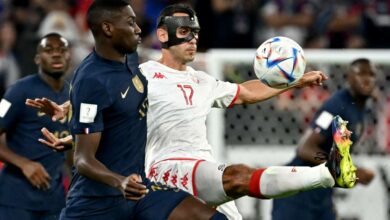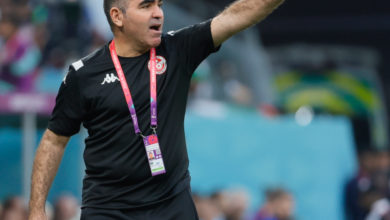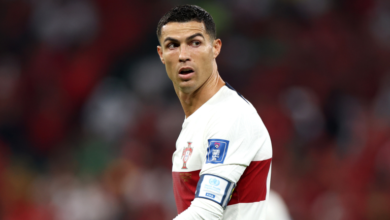North African sports achievements should no longer be described as “surprise”

When Morocco was leading its five-star conquest of the FIFA world cup 2022 to the semifinals, the media around the world were describing the Moroccan performance as a “surprise.” After the elimination of the Lions of Atlas by France in the semifinals, BBC wrote that “Morocco have lit up this World Cup with an unexpected run to the semi-finals, where their hopes of a shock triumph were crushed by defending champions France.” Yet, Morocco’s former world cup participations and the talents it has in its squad, when considered, make this year’s performance less of a “surprise.”
The fallacy that describing these achievements as “surprise” runs is that it communicates the impression that the world needs, on these occasions, to acknowledge, recognize, celebrate, or just pay attention to North African sportspeople, as if they were groping their way into world fame, while in fact they have been internationally visible over the last 4 decades, at least .
This is not the first time Morocco has ever made it beyond the group stage nor is it the first time a North African team has ever done it. In the 1986 and 2014 Morocco and Algeria qualified to the second round of the world cup. North African outstanding performances in the World Cup began even a longer time ago when Tunisia beat Mexico (3-1) in the 1978 edition held in Argentina before drawing against Germany who won that year’s edition. Four years later, the Mannschaft would be defeated by Algeria 3-0 in the 1982 edition.
Morocco’s wins against Spain and Portugal, with the Liga superstars in the Moroccan squad, is not that unexpected. In 2018, Morocco was kicked out of the 2018 world cup’s first round after bitter battles against their two Iberian neighbours, Spain and Portugal, and an own goal defeat against Iran in the dying time. One thing was sure then: in terms of performance, Morocco rivaled, to say the least, Portugal and Spain, who snatched an equalizer against the Lions of Atlas in the last seconds.
The adjective “Surprise” could describe the achievements of Ons Jabeur over the last year because tennis has never been a popular sport in the MENA region, not because she is an “Arab woman.” If the Tunisian runner Habiba Ghribi won the gold medal at the 3000 metres steeplechase during the 2012 Olympic games, describing the achievements of Tunisian female athletes as “surprise” is out of context, not to mention the objection of many Tunisians and even Arabs to the obsession of Western media with Jabeur being an “Arab woman.”
With a squad that featured PSG’s Hakimi, Chelsea’s Zyech, Sevilla’s Bono and El Nesiry, and Fiorentina’s Amrabet, Morocco went to Qatar in order to go far away, not to surprise.
Handball is the sport which has distinguished North Africa most with Egypt, Tunisia, and Algeria usually featuring the world cup and sometimes making it to advanced stages. Olympic gold medals in North Africa are not uncommon as the word “surprise” might imply. Tunisia, Algeria, and Morocco alone have won 17 gold medals in their participations in the Olympics.
Those who still think that North African sports achievements constitute “a surprise” may need to be reminded that El Nenni, Salah, and Mahrez are North Africans. If they are not yet convinced, let them be reminded that Zidane, Benzema, Samir Nasri, and Roma’s El Shaarawy have North African blood flowing in their veins.
In a world obsessed with normalizing what is previously ignored, neglected, forsaken, or discriminated against, let’s normalize the idea that North African sportspeople can compete internationally at the top level, and in these undertakings, they can make it while wearing the jerseys of their countries of origin, not the host ones.




